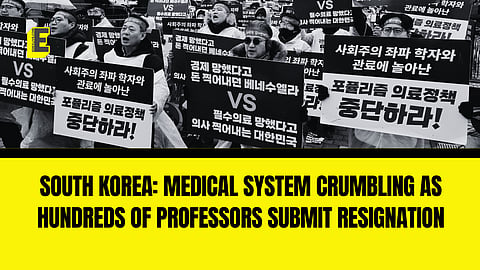

The planned resignations of medical professors in South Korea, as a protest against the government's proposal to increase medical school quotas, were scheduled to commence today, Thursday, April 25.
This move has raised concerns about its impact on the healthcare system, which is already struggling due to an ongoing strike by trainee doctors for several months, reported IANS.
According to officials, most professors, who also serve as senior physicians at prominent hospitals, seemed to have remained in their positions on the first day of the planned resignations taking effect. According to Yonhap news agency, no issues have been reported at hospitals regarding the submission of resignations.
Professors lend support
Since March 25, medical professors across the nation have submitted their resignations, which will become legally effective after one month.
According to IANS, the action is being taken in solidarity with junior doctors who began their strike on February 20, opposing the government's proposal to increase the intake of medical students by 2,000 starting the following year. "Each professor designated their own resignation date given their work schedules and other things," an official of the emergency committee of Seoul National University's medical school said.
Although the government has said that they are not accepting resignations.
The situation turns worse
As the junior doctors continue their strike, medical professors have been struggling to fill the void and major hospitals have already reduced surgeries and treatments for patients.
Professors are considering the possibility of taking a weekly day off, citing an "excessive" workload, fatigue, and burnout. They expressed frustration with the government's unreasonable imposition of medical reform plans.
Patients' groups have urged professors to ensure the continuation of essential emergency care services and treatments for critical cases.
